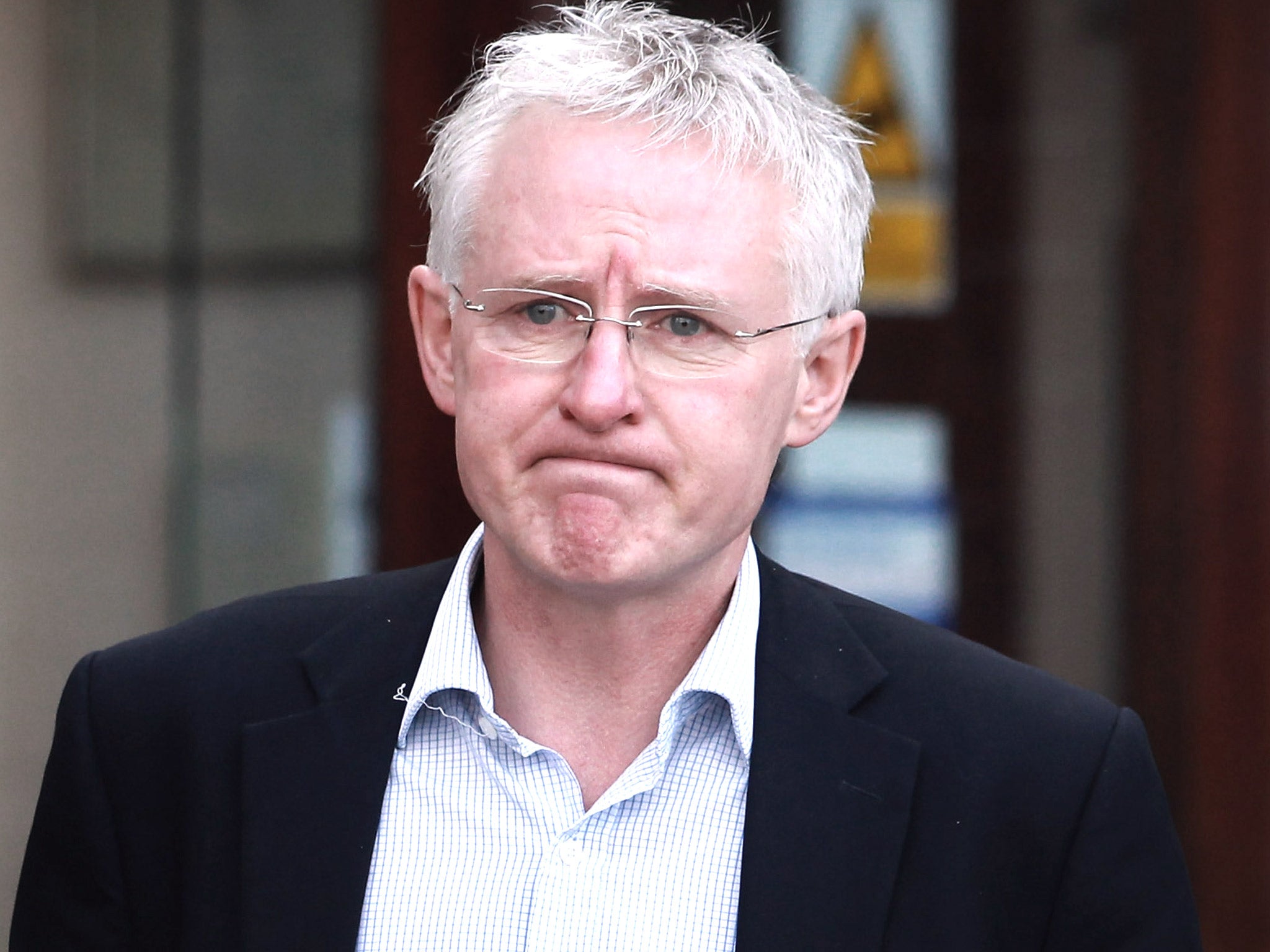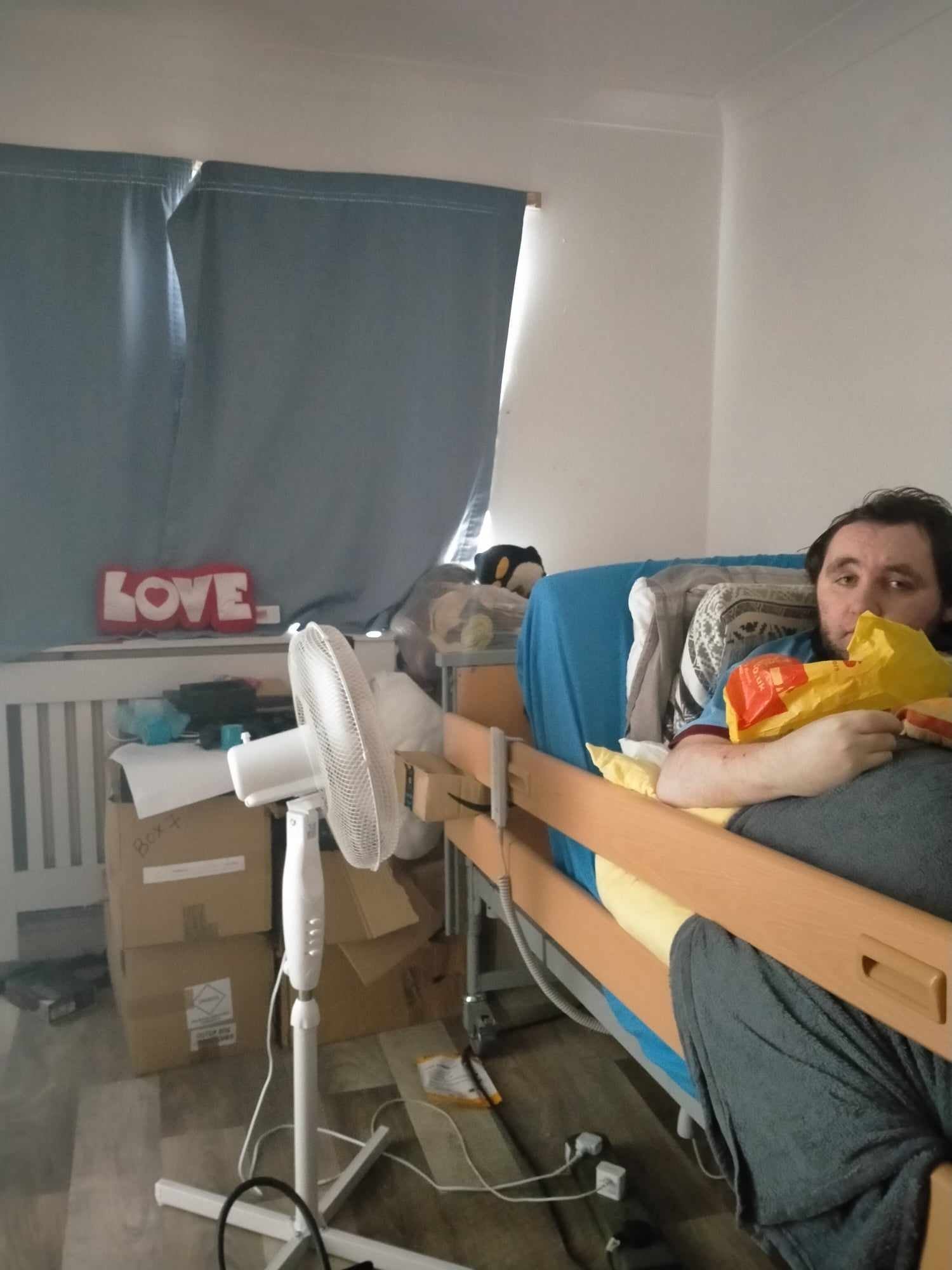Pressure on government to act to stop ‘cruel’ incarceration of autistic patients
Exclusive: Expert who led major scandal reviews calls for end to investment in inappropriate hospital care
The government must commit to funding social care and passing its long-delayed Mental Health Bill to prevent a repeat of the failures that led to the “cruel and inhuman” treatment of an autistic man who has been locked up for more than 10 years, experts and MPs have warned.
The Independent revealed on Thursday the harrowing story of 28-year-old Nicholas Thornton, who has lost the ability to walk and speak after being detained in inappropriate hospital and care settings for the past decade.
In the wake of his story, the government has been condemned over his care and for failing to address the issues that have led to thousands of people with learning disabilities and autism being locked away in mental health units for years.
It comes as a four-year-long independent inquiry revealed that dozens of these patients are still being held in solitary confinement – some for as long as 20 years.
The failures are despite promises made by the government in the wake of the Winterbourne View scandal in 2011 – which uncovered the abuse of people with learning disabilities and autism at the private hospital – to halve the number of these patients in hospitals by 2024. But that target is set to be missed.
In 2015, 3,400 patients with learning disabilities and autism were in hospital units. That figure now stands at 2,045, despite the NHS and the government promising to discharge 30 per cent into community care by March 2020, and 50 per cent by next year.
At least one in 12 of those still in hospitals are in units rated inadequate by watchdog the Care Quality Commission, and around 40 per cent have been in these units for more than 10 years.
Former minister for care and support Sir Norman Lamb, who led the creation of the Transforming Care programme which pledged to ensure that changes were made after Winterbourne, told The Independent that his biggest frustration is that “there are so many obstacles to progress – not least the vested interests of private institutions that make their money out of keeping beds filled”.
The former Liberal Democrat MP said that cuts to social care had played a part in the government’s failure to lower the number.
“When we read Nicholas’s story, we see how we continue to place autistic people in wholly inappropriate, stressed environments – bright lights, confined spaces, constant banging and crashing of doors. This is cruel and inhuman,” he said.

He added: “The tragedy of Nicholas Thornton – an autistic young man whose ‘care’ involves him being kept in isolation in a windowless room for 24 hours a day, as has been revealed by The Independent this week – ought to be an exception. Unfortunately, it is all too common in a care system that too often totally fails to treat vulnerable people with dignity and humanity.”
Barbara Keeley, a Labour MP and the chair of the all-party parliamentary group for disability, has called on the government in the Commons to address the “national scandal”.
She has demanded an increase in social care investment, more community support, and extra staff to help reduce the number of people with autism and learning disabilities who end up in hospital.
“I have called on the government to stop choosing to ignore this serious issue and act to end this inappropriate detention, which is destroying the lives of so many autistic people and people with learning disabilities detained, and their families,” she said.
Nicholas’s story comes after the government dropped its long-overdue reforms to the Mental Health Act from the King’s Speech this week, prompting an outcry from its own MPs as well as campaigners.
It had pledged to introduce changes that would make it harder for people with autism and learning disabilities to be hospitalised without medical need.
Ella Pitt, campaigns manager at the National Autistic Society, said thousands of autistic people had been “abused and permanently damaged” by the failings of the mental health system, adding that the omission of the bill from the King’s Speech was a further blow.
“Despite enormous consensus behind the desperate need for reform, the 2,045 autistic people and people with a learning disability currently in mental health hospitals have been ignored,” she said.
“This is a crushing disappointment. The Mental Health Bill wasn’t a complete solution to the issue of autistic people being locked up in mental health hospitals, but it did represent a big step forward on an urgent issue that we’ve been campaigning about for over a decade.”

Dr Margaret Flynn, chair of the mental capacity forum for England and Wales, who wrote reviews into the abuses at Winterbourne View and later at another unit at Cawston Park Hospital, called on the government to end the practice.
She said: “Regrettably there is nothing unusual about a young man with autism languishing in an inappropriate service because there is no care package and no other service willing to support him.
“Do the stewards of the public purse imagine that specialist services which do not employ specialists represent prudent investment? For all our sakes, I hope not.”
A Department of Health and Social Care spokesperson said: “We are deeply concerned by examples of unacceptable treatment of people with a learning disability and autistic people, and are committed to ensuring they are supported to live fulfilling lives in their community. We have been clear that where admission to hospital is needed, it must be therapeutic and for the shortest time possible.”
They said that the number of people in inpatient settings had fallen by 30 per cent since 2015.
Timeline of the government’s failure of people with autism and learning disabilities
May 2011: The BBC’s Panorama exposes abuses of people with autism and learning disabilities at Winterbourne View Hospital
August 2011: The Department of Health publishes the Transforming Care Concordat, pledging to review all 3,400 people with learning disabilities and autism within hospitals and discharge those who should not be there by June 2014
October 2013: Connor Sparrowhawk, a learning-disabled and autistic teenager, dies following a seizure in a bath at an NHS assessment and treatment unit run by Southern Health NHS Foundation Trust. In response, the NHS launches an independent inquiry, which later finds that the trust failed to investigate the deaths of 1,000 patients
June 2014: The government fails to meet its first Winterbourne View promise
October 2015: NHS England’s Building the Right Support plan promises to reduce the number of people in inpatient units – 2,600 at the time – by 35 to 50 per cent by March 2019
January 2019: NHS England publishes a long-term plan promising again to move 35 per cent of people out of hospitals into the community by March 2020 and 50 per cent by March 2024
May 2019: The BBC’s Panorama exposes a second scandal, at Whorlton Hall, involving staff abusing patients with learning disabilities and autism
March 2020: The target to reduce the number of patients in hospitals by 35 per cent is missed – with only a 15 per cent reduction in the number of people locked away
September 2020: Another scandal is exposed as staff at a private hospital run by Cygnet Health Care, Yew Trees Hospital, are caught on camera dragging, slapping and kicking a patient with learning disabilities
October 2020: The Care Quality Commission review of the restraint and seclusion of patients with learning disabilities and autism warns of “inhumane” care and recommends that these patients be discharged into community settings
September 2021: Serious case reviews into the deaths of three patients with learning disabilities and autism at a private hospital in Norfolk, Cawston Park, reveal that multiple failings led to their deaths
November 2021: The Independent reports a review into the life and care of Clive Treacy, a man with learning disabilities who spent his life in mental health hospitals until he died an “avoidable” death in a private unit
November 2023:Baroness Hollins publishes her report following a four-year-long inquiry which reveals that 115 people with learning disabilities and autism continue to be held in solitary confinement – some for up to 20 years
Join our commenting forum
Join thought-provoking conversations, follow other Independent readers and see their replies
Comments
Bookmark popover
Removed from bookmarks